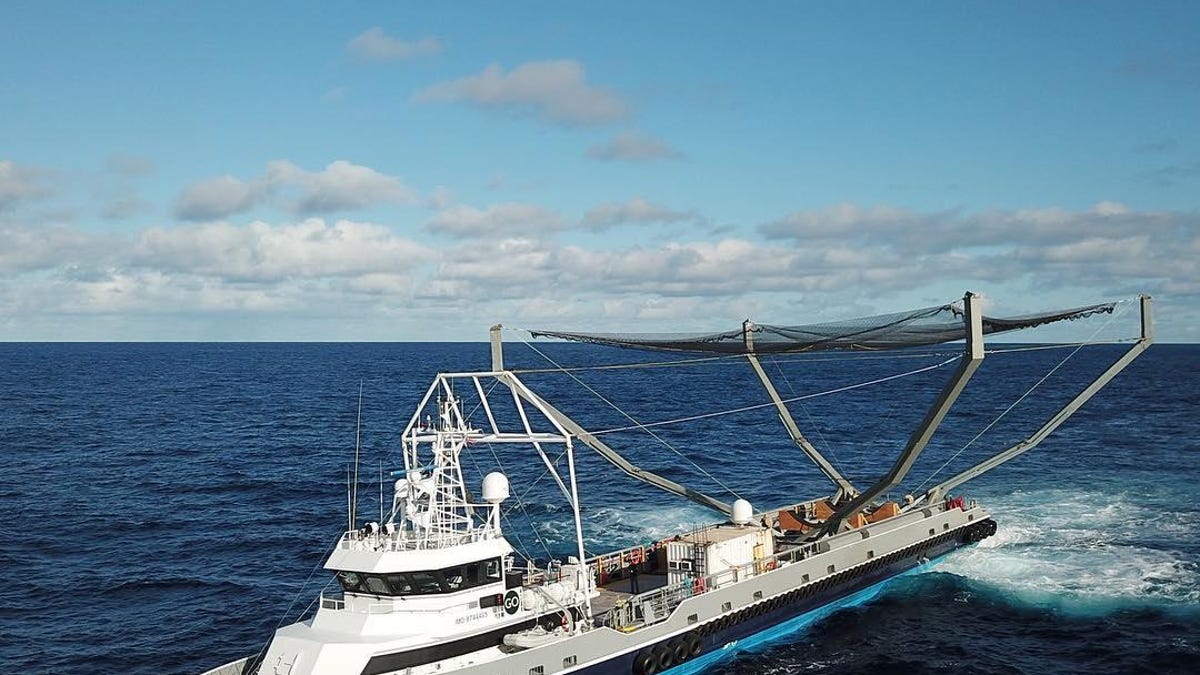SpaceX just missed grabbing part of its rocket with a big net
Elon Musk wanted to recycle the nose cone from the latest launch, so he sent a boat named Mr. Steven with a "catcher's mitt" to try to snag it.

Mr. Steven in the Pacific playing catcher.
In the world of space exploration, it's fair to call Elon Musk and his company a little obsessed with recycling.
The latest SpaceX plan for reusing rocket parts is to catch the fairing -- the nose cone that covers a payload during launch -- with a huge net mounted on a boat.
Perhaps the first attempt in human history to catch something literally falling from space didn't quite work out Thursday as Musk had hoped.
The tugboat, named Mr. Steven, was deployed to the Pacific Ocean to try to grab the fairing used in the launch of two SpaceX prototype broadband microsatellites and a Spanish Earth-imaging satellite.
GPS-connected parasails on the fairing slowed it down after its long, supersonic fall toward the ocean and then tried to guide it to a specific spot where Mr. Steven was supposed to be waiting, but it wound up missing the target.
Musk said via Twitter that the fairing missed the net by a few hundred meters but landed intact in the water:
"Should be able catch it with slightly bigger chutes to slow down descent."
Musk, in a press conference following the successful launch of the Falcon Heavy rocket, first described the space-debris catching ship as "a giant catcher's mitt in boat form."
We'll see if SpaceX can get its next pitch from space into the catcher's mitt. The company's next launch is set for Sunday from Florida, but there's been no word on how, or if, SpaceX will attempt to recover that fairing. I've contacted the company to find out and will update this post when I hear back.
Crowd Control: A crowdsourced science fiction novel written by CNET readers.
Solving for XX: The tech industry seeks to overcome outdated ideas about "women in tech."

